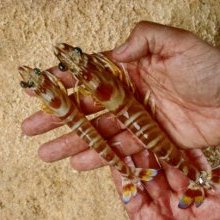Background
Since 2000, efforts have been underway to develop national organic standards for farmed aquatic animals. When Congress passed the Organic Foods Production Act in 1990, fish were included in the definition of livestock, however, when the U.S. Department of Agriculture released the final regulations on National Organic Standards for Agriculture in 2000, fish were specifically excluded in this rule.
Today, organic markets are growing nationally and internationally and some domestic and imported aquaculture products are sold with organic labels from independent certifying agents using inconsistent standards. Because USDA has no national regulation that covers organic aquaculture products, no enforcement action can be taken for inconsistent organic-labeled aquaculture products.
This situation has created confusion with consumers because of the prohibition to use the nationally recognized USDA organic seal and also consternation by the organic agriculture community because of the lack of consistent national standards similar to other agricultural products. Aquatic foods (fish) are the only major food category in the revised 2005 Federal Dietary Guidelines that do not have USDA National Organic Program approved organic standards. Another category with no organic standards is pet foods!
Farmed Aquatic Animals and Organic Markets
Currently, an un-level playing field exists because of more aggressive actions taken by foreign producers selling products with organic label claims that are inconsistent and do not meet any U.S. standard. This may impact acceptance of fish in organic markets and puts fish on the outside, suspiciously separated from other animal protein products which can meet national organic standards and be sold with the USDA organic seal. The demand and potential profits from producing and marketing organic certified aquaculture products will be determined by consumers and entrepreneurs. Opportunities in the future may also differ from those of today.
New Opportunity
With the recent decision by the National Organic Standards Board (NOSB), an advisory body to the USDA National Organic Program, to form an Aquatic Species Task Force charged to develop organic standards for aquatic animals, the best opportunity exists for national organic standards similar to other agricultural products. This will also require ALL organic-labeled products to meet the same U.S. national standard, whether domestic or imported. We bring this matter to your attention because we believe it is important for aquaculture to demonstrate it can also meet stricter production, handling and processing requirements that differentiate organic farms from conventional farms similar to terrestrial animals and their products.
Organic production is not intended for everyone. It does offer an option to develop new food supply chains to meet consumer preferences in some market segments. The task of obtaining nationally approved organic standards by a federal rulemaking process will not be easy and will require active participation by the aquaculture community to be successful. This process will start soon.
National Organic Aquaculture Work Group
The National Organic Aquaculture Work Group (NOAWG), which we represent, was formed last year to create a coalition of interested parties in government, industry and academia to develop national organic products for farmed aquatic animals.
NOAWG includes academic expertise and industry leadership in addition to being recognized as a critical contributor to developing national organic standards by the USDA National Organic Program. Ultimately, the success of this initiative will depend on the active engagement by the U.S. aquaculture community, particularly the industry that has the most to lose or gain by the outcome, in addition to U.S. consumers.
Assistance Needed
At this time we want to inform you of this initiative to develop national organic standards for farmed aquatic animals and also solicit your interest and support. You can help by keeping abreast of activities, supporting nominations of aquaculture representatives to an Aquatic Species Task Force being formed, and reviewing and commenting on proposed standards when they are released for public review and comment. Nominations and supporting letters for individuals to serve on the NOSB Aquatic Species Task Force which will consist in part with a 12-person Aquaculture Working Group have to be postmarked no later than February 23, 2005.
If you want to keep abreast of activities and provide assistance as needed to help achieve success with this new national initiative, please contact either of us by email at your earliest convenience.
George Lockwood: GSLockCVCA@aol.com
Richard Nelson: ecotruchas@hotmail.com
Co-chairs, National Organic Aquaculture Work Group
US National Organic Standards Board NOSB Aquatic Species Task Force Website
You may also send comments to: editor@aquafeed.com











